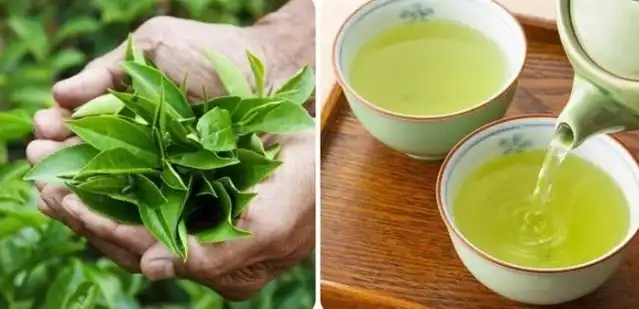Health benefits
Green tea is delicious but a big no-no for this group
Green tea is a drink loved by millions of Vietnamese people and used daily, but it sometimes has contraindications.
/Thanh Thanh – summary/
Below are people who are recommended not to drink green tea:
People with atherosclerosis
Green tea contains many biologically active ingredients, such as caffeine, theophylline, and theobromine, which can cause cerebral blood vessel spasms, slowing blood circulation and promoting the formation of cerebral thrombosis. It can also cause systolic spasms of the coronary arteries, causing myocardial ischemia, angina, palpitations, chest tightness, and arrhythmia.
People with heart disease or high blood pressure
Drinking too much strong tea will increase the burden on the heart, increase heart rate, and increase blood pressure.
People with nervous breakdowns or insomnia
Green tea contains caffeine, which stimulates the nerves. Therefore, drinking tea can make the brain overexcited, causing insomnia, and it is tough to drink before bed.
People with frequent bowel movements should not drink a lot of tea.
An article by Dr. Le Thi Huong in the Health & Life Newspaper said that tea contains a lot of acid that reduces intestinal contractions and deposits proteins, peptides, iron, and metal ions, causing constipation or making people with constipation worse.
It should be noted that the longer tea leaves are boiled, the more tannin is separated, and the more detrimental it is to people with constipation.
People sensitive to caffeine
Green tea contains caffeine. Consuming too much of this substance can lead to nervousness, anxiety, irregular heartbeat, and tremors. Some people who cannot tolerate caffeine will experience those symptoms even if they drink a little tea.
Drinking drinks high in caffeine can also interfere with calcium absorption, affecting bone health and increasing the risk of osteoporosis.
Women during menstruation and postmenopausal women
Women at this stage will suffer from anemia and should not drink green tea. In addition, green tea is cold, and if consumed during menstruation, it can cause or worsen premenstrual syndrome. Women in menopause sometimes experience heart palpitations and poor sleep. Drinking too much tea will exacerbate these symptoms, so drink less and avoid strong tea.
Pregnant and lactating women
Green tea contains caffeine, catechins, and tannic acid. All three of these substances are associated with risks during pregnancy. Drinking green tea in small amounts, about 2 cups per day, is safe if pregnant or breastfeeding. This amount of green tea provides about 200mg of caffeine.
However, drinking more than 2 cups of green tea/day is associated with an increased risk of miscarriage and other adverse effects. Caffeine passes into breast milk and can easily affect the baby. Drinking too much can cause neural tube defects in newborns.
In addition, some groups should limit drinking green tea, such as people with emotional disorders, heart disease, diarrhea, glaucoma, liver disease, or taking medication.
Children should also not drink green tea because tannins can hinder the absorption of nutrients such as protein and fat in children. Caffeine can also lead to overstimulation.

People with anemia
Thanh Nien newspaper quoted Guru On Time as saying that tannic acid in green tea combines with iron in food, hindering iron absorption into the intestinal mucosa and causing iron deficiency. This can cause anemia. Therefore, people with anemia should be cautious when drinking green tea. It’s best not to drink.
People with calcium deficiency or bone fractures
Alkaloids in green tea can inhibit calcium absorption and, at the same time, promote calcium excretion in urine so that calcium in the body becomes less and less, leading to calcium deficiency and osteoporosis, and bone fractures are challenging to recover.
The person has a high fever.
Patients with fever should drink filtered water. The theophylline compound in tea increases body temperature, making fever worse, and also has a diuretic effect, reducing fever-reducing effectiveness.
The patient has stomach problems.
VietNamNet newspaper quoted Practo as saying that tannins in green tea increase stomach acid, quickly causing stomach pain, nausea, or constipation. Therefore, you should not drink green tea when you are hungry. People with stomach ulcers or acid reflux should also not drink too much. One study concluded that tea is a potent stimulant of stomach acid, which can be reduced by adding milk and sugar.
Some side effects may occur.
The Medlatec General Hospital website article talks about medical consultations from BSCKI. Duong Ngoc Van said that if you drink too much green tea, you may experience some side effects, such as:
– Dizziness, headache, and symptoms of gastrointestinal disorders.
– Increased liver toxicity due to metabolites or high epigallocatechin gallate concentrations.
Above are the groups of people recommended not to drink green tea. If you belong to the above group of people, avoid this drink.
